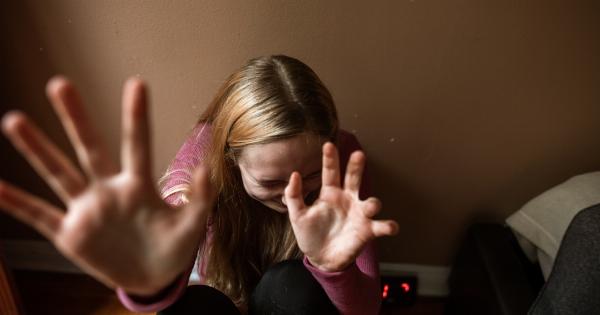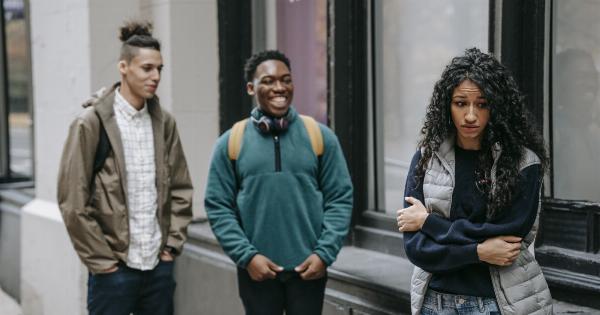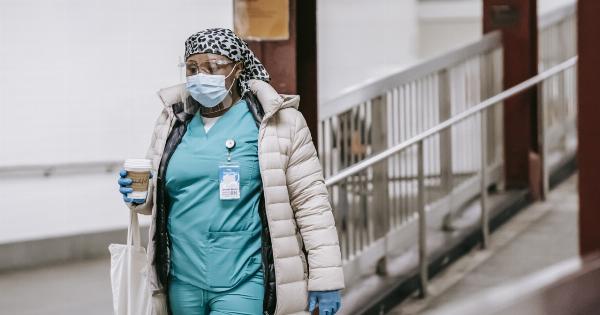Domestic violence is a pervasive issue that affects millions of individuals around the world. It involves the use of physical, emotional, or sexual abuse to exert control over a partner or family member.
While efforts have been made to address this problem and support survivors, little attention has been given to the long-lasting effects of imprisonment on the victims of domestic violence. This article aims to explore how imprisonment impacts survivors and the unique challenges they face.
The Cyclical Nature of Domestic Violence
Before delving into the effects of imprisonment, it is crucial to understand the cyclical nature of domestic violence. In many instances, victims find themselves trapped in a repetitive pattern of abuse.
This cycle typically includes a period of tension building, an explosive and violent incident, followed by a phase of remorse, apology, and temporary calm.
The Impact of Imprisonment on Domestic Violence Victims
When an abusive partner or family member is incarcerated, it may initially provide a sense of relief for the victim. They no longer have to fear immediate physical harm or endure constant emotional abuse.
However, the consequences of imprisonment on the victim can be complex and multifaceted.
Emotional Turmoil and Psychological Effects
One of the primary impacts of imprisonment on domestic violence victims is the emotional turmoil they experience. Many survivors battle a range of conflicting emotions, such as relief, guilt, anger, and sadness.
They may also struggle with feelings of abandonment, as their perpetrator is physically removed from their lives but still has a profound impact on their emotional well-being.
Financial Instability and Economic Dependence
Imprisonment often leads to significant financial instability for victims of domestic violence. Many survivors rely on their abuser for financial support and find themselves suddenly left without any means to support themselves or their children.
This economic dependence can create additional obstacles in their journey towards independence and healing.
Isolation and Lack of Support
Imprisonment can further isolate domestic violence victims. In many cases, the abusive partner exerted control by isolating the victim from friends, family, and support networks.
With the perpetrator behind bars, survivors may struggle to rebuild their social connections and find the support they desperately need.
Legal and Administrative Challenges
Survivors of domestic violence often face various legal and administrative challenges when their abuser is imprisoned.
Navigating the legal system, obtaining protection orders, and dealing with child custody issues can be overwhelming and emotionally draining. Lack of knowledge about the legal process and limited access to legal aid may further hinder these individuals from seeking justice and protection.
Revictimization and Fear
Imprisonment does not guarantee the end of abuse for domestic violence victims. In some instances, survivors may face continued harassment, threats, or even violent acts from their abuser or their associates.
The fear of retribution can prevent individuals from moving forward and perpetuate a cycle of victimization.
Lack of Rehabilitation and Reintegration Programs
While incarceration primarily aims to punish the offender, it often falls short in terms of rehabilitation and reintegration programs for both perpetrators and survivors of domestic violence.
The lack of comprehensive support systems can hinder the healing process and increase the likelihood of repeated cycles of abuse once the abuser is released.
Stigma and Judgment
Domestic violence victims often face societal stigma and judgment, which can be exacerbated when their abuser is imprisoned.
Society’s perceptions and misconceptions about the dynamics of abuse can make it challenging for survivors to seek help, share their experiences, and rebuild their lives free from judgment.
Limited Resources and Access to Services
The aftermath of domestic violence often requires survivors to access various resources and support services.
However, limited availability, long waiting lists, and insufficient funding pose significant challenges for victims, particularly when their abuser’s imprisonment is a turning point for seeking help. This lack of resources can delay their healing process and perpetuate the cycle of abuse.
Children as Indirect Victims
In cases of domestic violence, children are often indirect victims who witness and experience the traumatic effects of abuse. When an abusive parent is imprisoned, children may suffer from significant emotional and psychological challenges.
The absence of their caregiver, coupled with the trauma they’ve experienced, can have long-lasting ramifications on their well-being and development.
Conclusion
Imprisonment, while removing the immediate physical threat, introduces a unique set of challenges for victims of domestic violence.
Emotional turmoil, financial instability, isolation, and fear are just a few of the numerous issues survivors must grapple with. It is imperative for society to recognize and address these challenges to ensure comprehensive support and rehabilitation for these individuals.





























